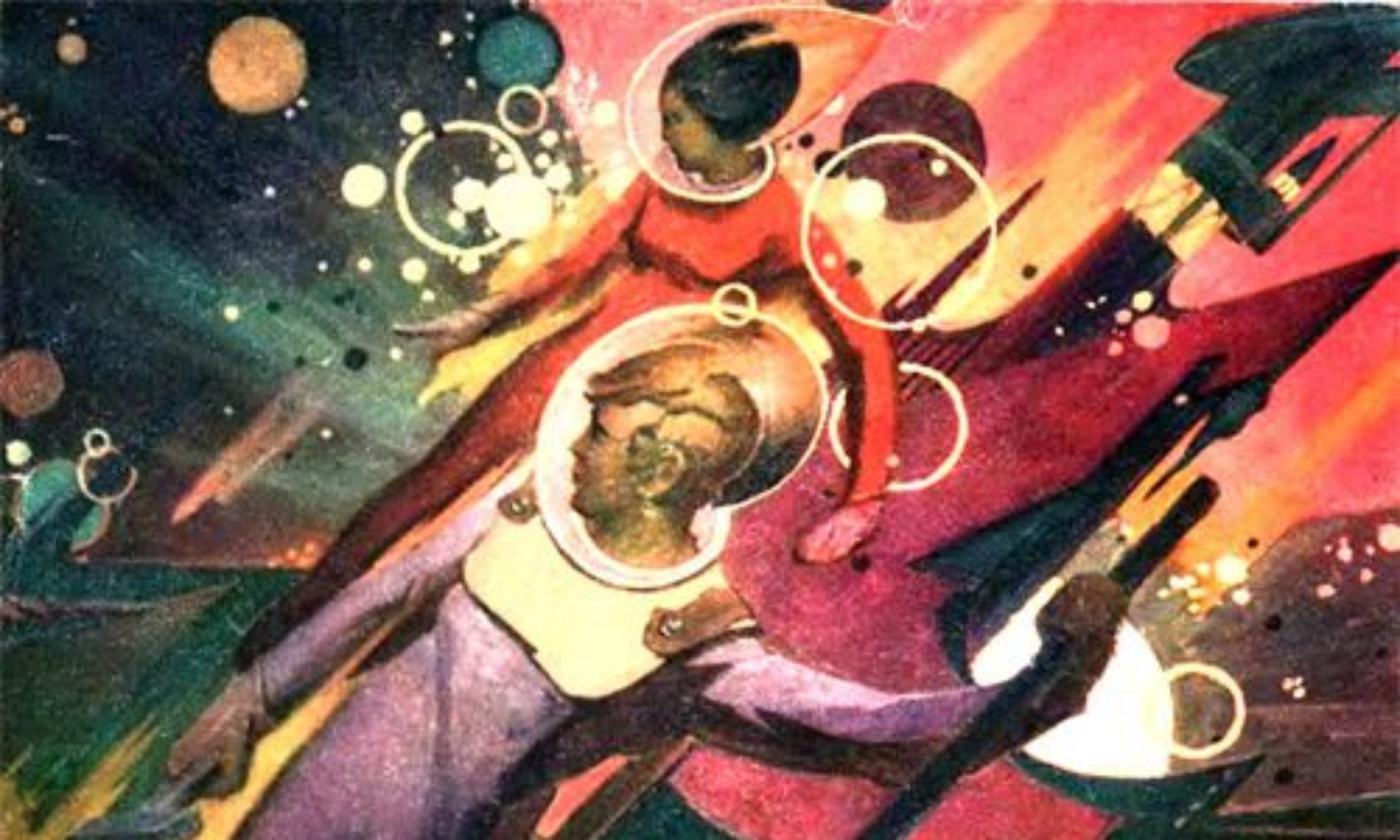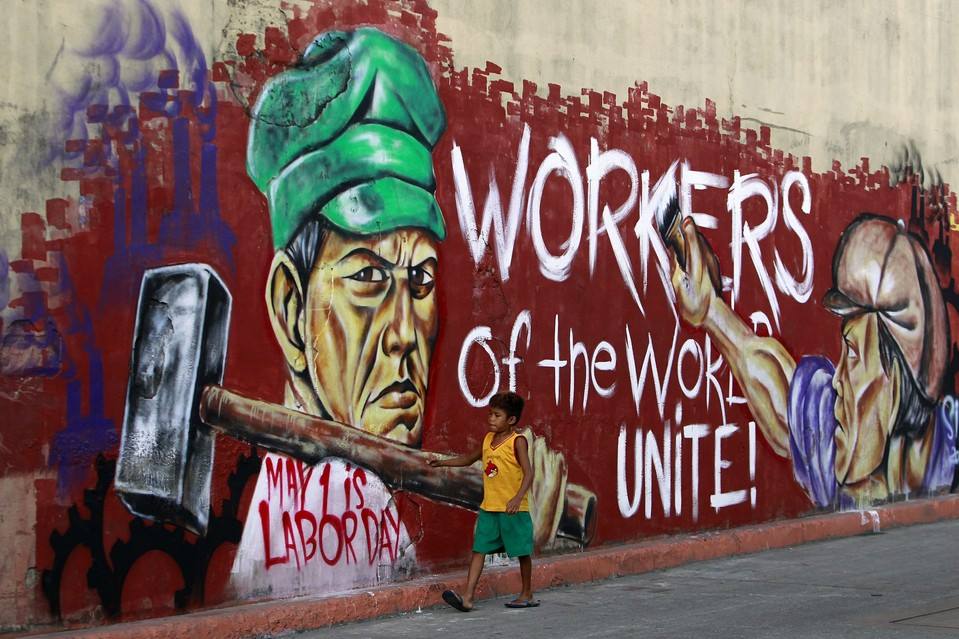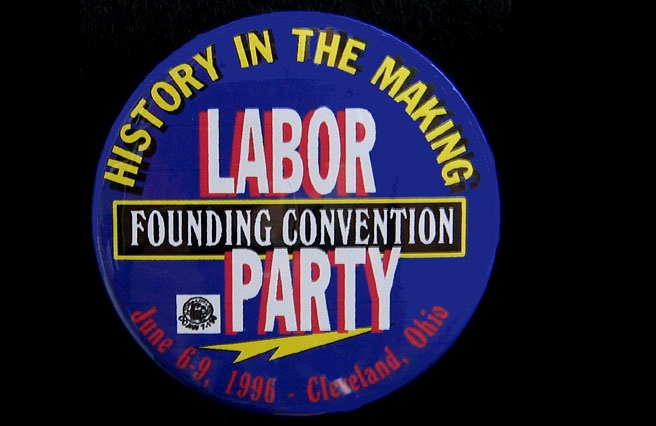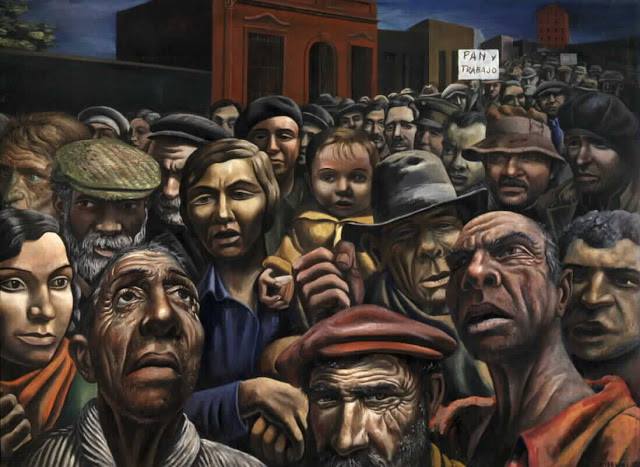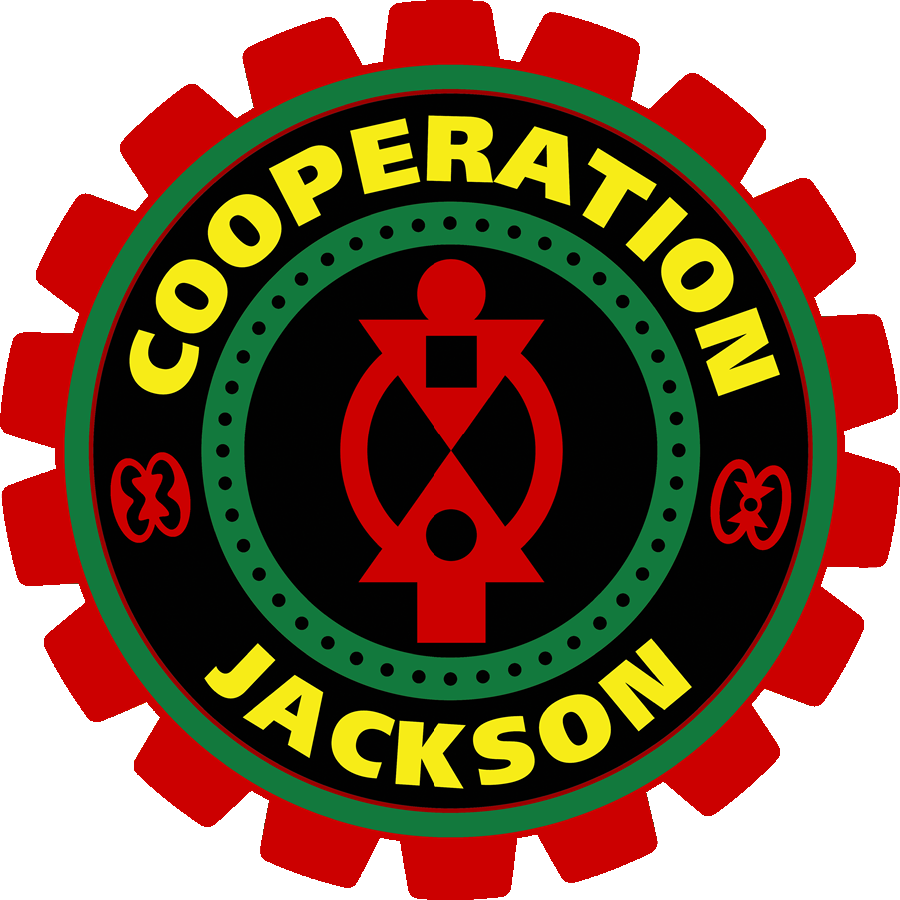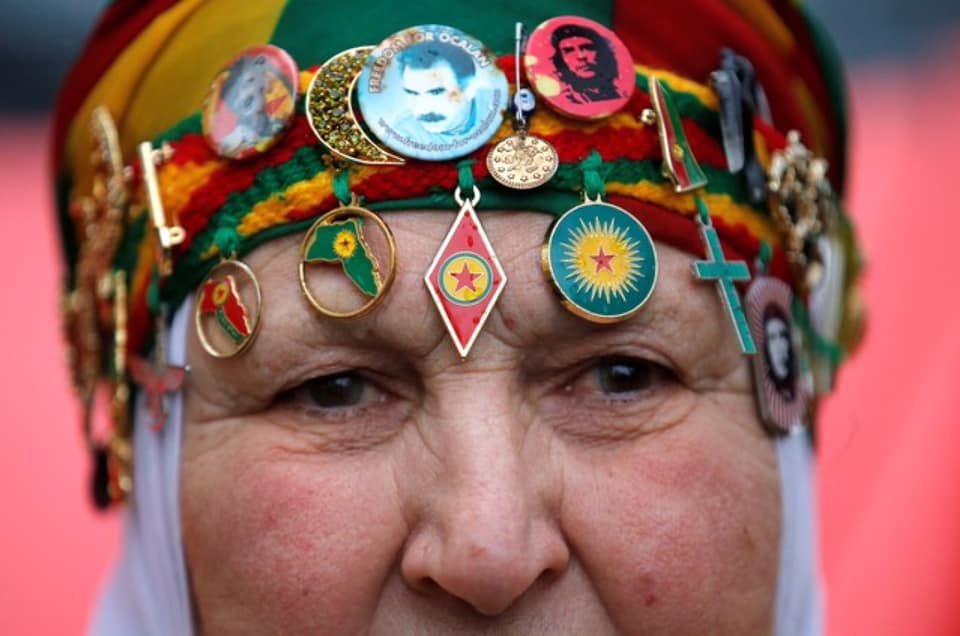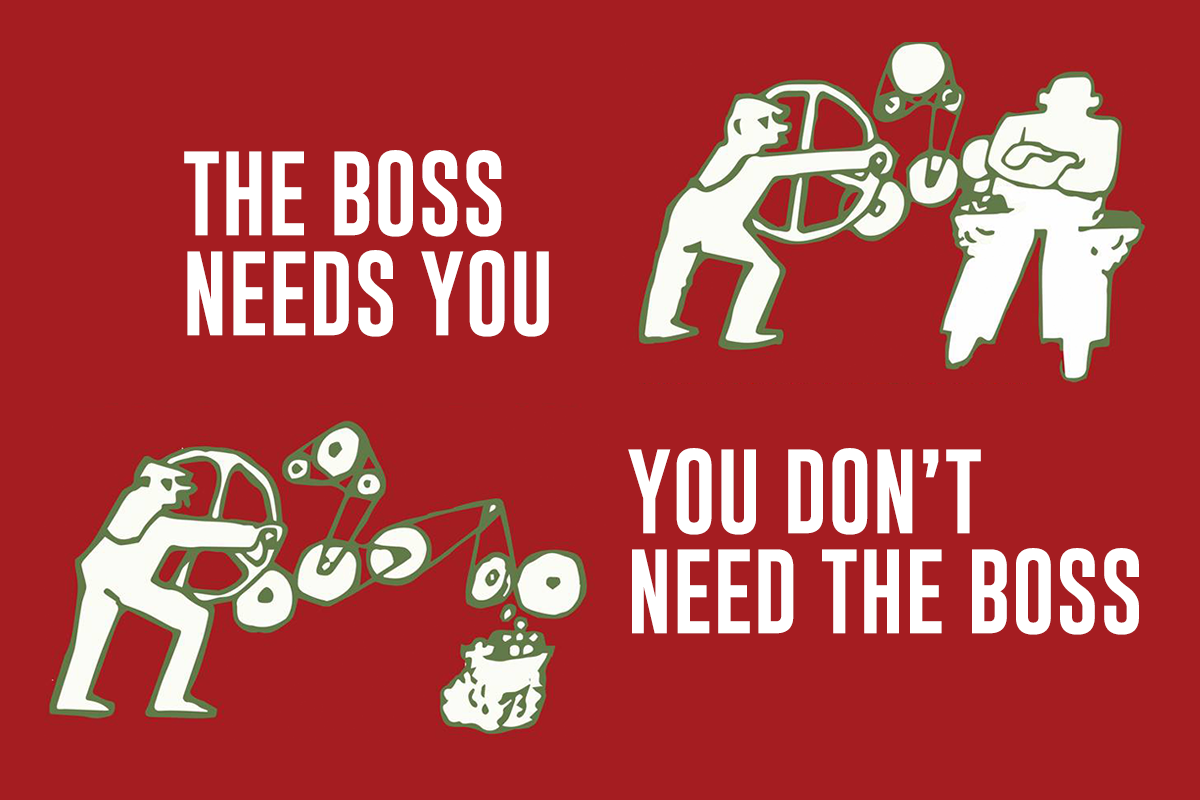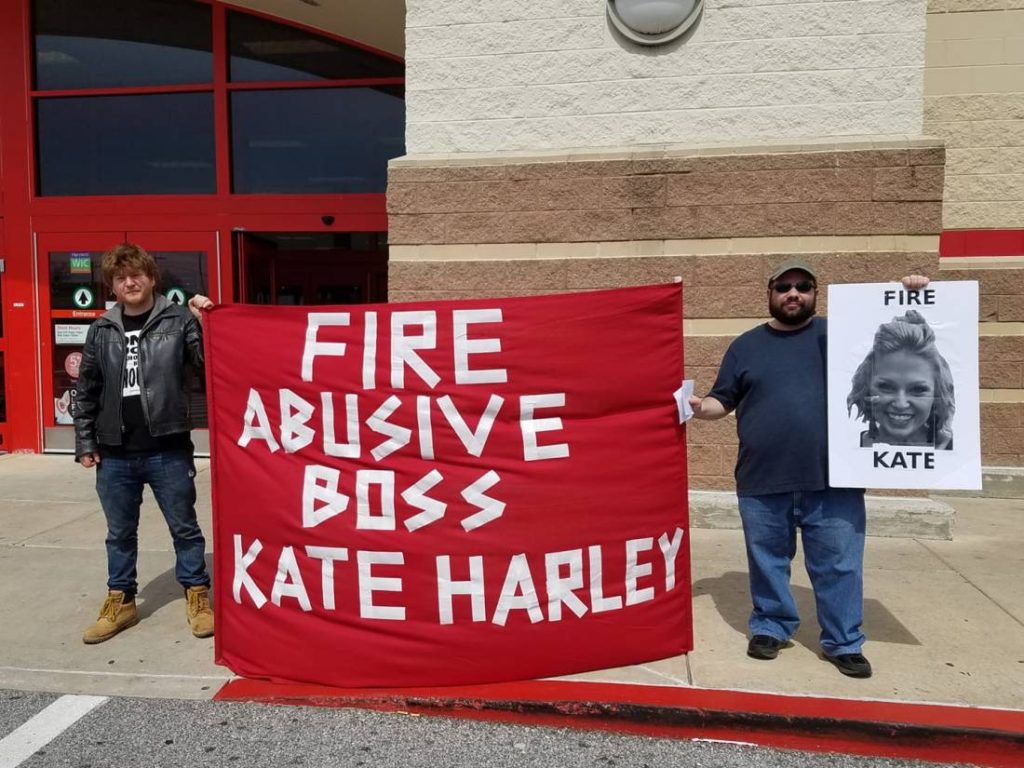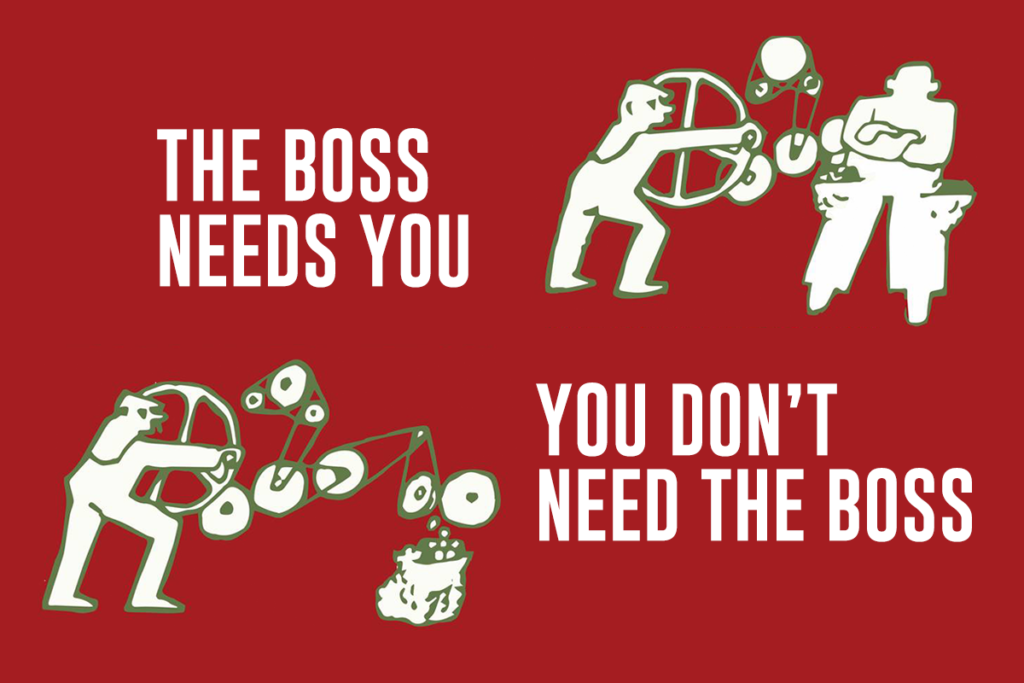In this follow-up interview, Ryan Powers speaks again with Teodorico “Teody” Duran Navea. Teody is a spokesperson for the Cebu City chapter of Partido Lakas ng Masa (Party of the Laboring Masses — PLM), a socialist party in the Philippines. The interview was recorded on July 16, 2020.
In our last interview, Teody explained the imperial, economic, and political causes of the “Anti-Terror Bill.” Since then, the bill has passed, so Teody spoke with Ryan again to discuss the bill’s implications, the organized resistance to it, as well as its connection to the broader struggle for socialism.
Additionally, Teody offers insight and context to the current economic hardship for everyday Filipinos during Covid. He also gives an overview of the current Filipino left.
(Note: In the previous interview, Ryan made an error and wrote that Teody is the Secretary General of PLM. His actual title is Spokesperson for the Cebu City chapter of PLM.)
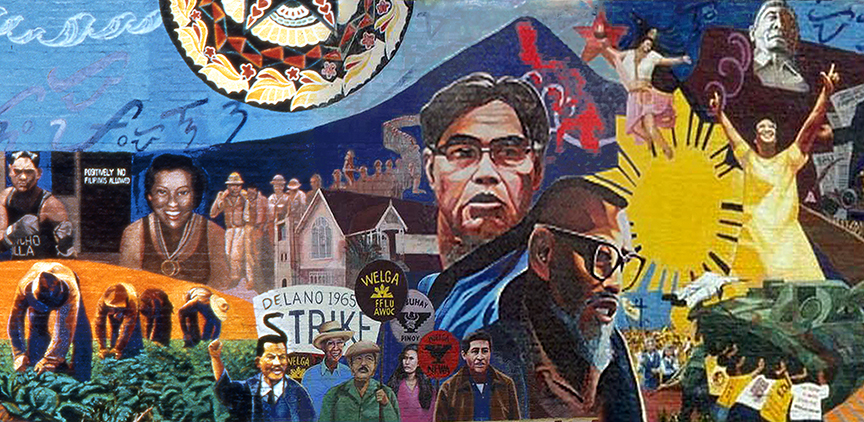
Ryan Powers: Hello.
Teodorico Duran Navea: Hello Ryan. Good morning. It’s morning here.
RP: Good morning!
TDN: And good evening to you.
RP: Great. Thank you for talking with me.
It was June 8 when we last talked, and at that time the Anti Terror Bill was not yet passed, and you talked about what the effects of the bill passing would be. Now it is July 16, and the bill has passed, so first of all, please summarize for people what the bill’s passage means.
TDN: The bill was passed last July 3. The bill will take effect on this coming July 18 because after the passing of the law, it will take fifteen days for the law to be implemented. That will be tomorrow.
It means a lot to us for Filipinos because after the bill was approved on July 3, there was a lot of noise from various sectors. Professional organizations and from all walks of life were really disgusted of the passing of the law.
In fact, as far as the Supreme Court is concerned, there are already nine petitioners before the Supreme Court. A group of which we are allied, Sanlakas, filed a petition just two days ago, and were the eighth group who petitioned the Supreme Court. The major contention for our group was that one, the definition for “terrorist,” which was broken in the provisions of the law, is very questionable. We find it detrimental to those who oppose the present government. It would mean labeling legitimate organizations like ours as terrorist, and that would endanger us in our future activities. We might be labeled as terrorist, and therefore we would be subject to what the law requires. If we were to be labeled as terrorist, then we can be imprisoned, arrested without warrant, and we can be put to jail for six years.
RP: Could you go into more detail about what effects the bill will have, especially during Covid?
TDN: Starting tomorrow, the effect would be, it will serve major suppression, repression for those who oppose the government, for the legitimate civil society organizations. And as I have already clarified to you with my earlier interview, the present government right now feels very insecure because it’s response to the pandemic seems to be questionable. People might complain, might address the questionable government. So to quell that, the government already knew what to do, so the bill is a form of suppression, repression, so that it will be able to control the people. It will create seemingly a dictatorial kind of government, but using a legitimate law, the Anti Terror Bill, so it will not be hard for Duterte to make use of the law to quell dissent.
RP: The bill also specifically names communists and Islamists. Can you talk about who that includes and what the effects of that might be for leftists?
TDN: Yes. For example, here in Cebu, I cannot decipher anything that can be considered “terrorist.” There are no extreme groups or extreme rebel movements like you can see in Mindanao, where you can really figure out who is a terrorist, if we are agreeable on that terrorists are those considered people who put others’ security at risk.
But this time around, if you broadly define terrorist, it exerts on I think legitimate rights just like doing a strike, like defending the communities and the poor from demolitions. These kinds of acts will now be able to be considered as terrorist, therefore it finds you who do them a terrorist.
As in the case in Cebu, there is no armed rebel movement here. Even the communists, there is no armed group. It’s a very urbanized place. Many years ago there was one place in Cebu — because Cebu is part of the Central Visayas Region — there was a manifestation of rebel movements there, particular communists, but for so many years now, there is not a single rebel activity present.
But because of the passing of the law, that is now our predicament, that we might be tagged as a terrorist, that we will abide by what is being expected under the law, Anti Terror Bill.
RP: PLM is a socialist party. Are you afraid that PLM will be targeted by the language of communism in the bill?
TDN: Yes. That would be our problem now actually: how do we go forward with our mass organizing, how do we go on with our many activities, assemblies, and so on? How to support the mass support of the basic sectors? These are all our activities in which we can easily be targeted for doing terroristic acts. You might be part of the broken definition of a terrorist. So PLM is wary of that, that kind of implication to our organization.
RP: Ok. So now let’s talk about what the opposition to the bill has looked like.
TDN: Since tomorrow will be the first day that the law will be implemented, the opposition is now bent on pursuing for the repeal of the law, and the Supreme Court is just one arena of struggle. And we are making this issue as a major concern in the upcoming State of the Nation Address of the present government that would be held on July 27. We are still making a plan on how do we engage that on July 27. But in our Manila counterpart, our national office, they are already doing some alliance-building for a major united front where we will tackle the issue on July 27. So there are a lot of movements there in Manila, and we talked with some groups uniting against the bill.
RP: Can you talk about the tactic of engaging with the Supreme Court, what that has looked like, and how effective you think it will be?
TDN: If you asked me what will be the reception of the Supreme Court, totally I don’t think it will be favorable to us. Why? Most of the Supreme Court justices were appointed by the Duterte administration, so we have no illusion that what we have filed as a petition will be capable [of working] for the Filipino people. But still, as part of our own way of pressuring the government, we state that we think we have the moral grounds. I hope that will shake them, to let them hear the voice of the people and the pressure and so on.
It must be combined as an arena of struggle; it must be interconnected with our pressure outside. If we are silent, I think all the more the Supreme Court will not bother to hear our voice, but if it is combined with other forms of struggle, maybe then the Supreme Court decision will be beneficial of the interests of the Filipino people.
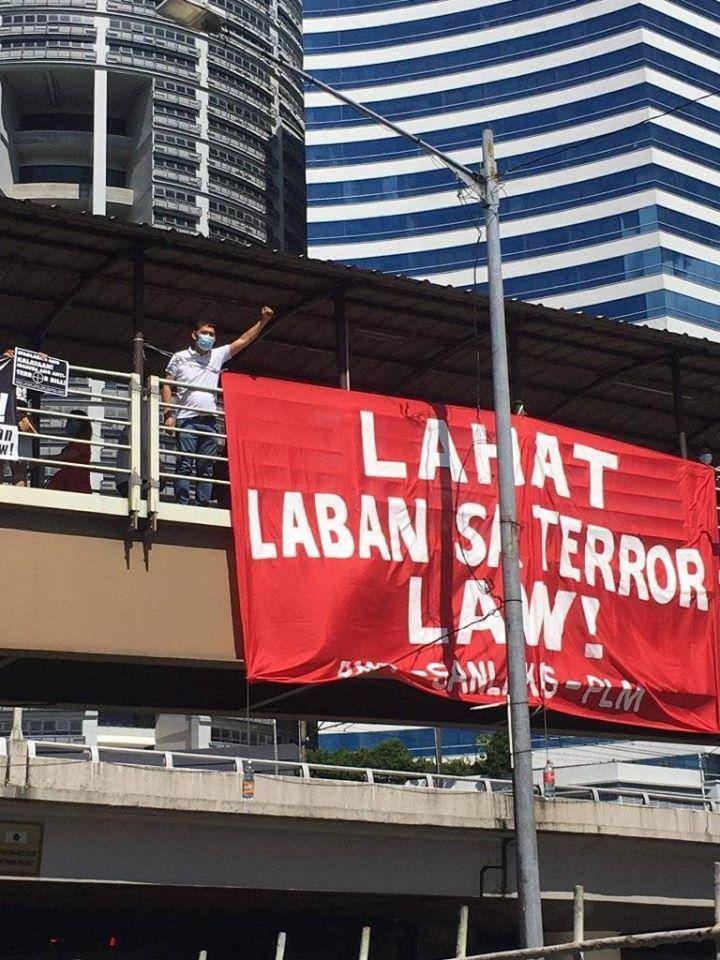
RP: And you said there are nine petitions currently that they have to hear. When do you expect to hear a result on that?
TDN: The ball is before the Supreme Court, and they have the discretion when or what particular time they will answer all the complaints. But for us it doesn’t matter. We are more concerned with how do we engage in extreme pressure. That is the one that will intervene when the Supreme Court will have their decision.
RP: In that case, can you talk about what that outside pressure looks like right now and what you are building?
TDN: A lot of meetings, a lot of many consultations and then discussions of many groups nationwide, local areas, areas like ours at the national level and so on. So we are gearing toward preparing a unified action come July 27 during the State of the Nation Address of the Duterte administration. We still have to firm up on how do we engage in this kind of activity.
As far as Cebu is concerned, we are still in Enhanced Community Quarantine. That will be very difficult for us to have an activity where we will congregate warm bodies. We might reduce ourselves again to coming out with online community actions,1 unlike in Manila because they are now in General Community Quarantine status. They’ll already be managed to come up with activities where they will congregate warm bodies and doing the normal actions that we usually do like mobilizations, as long as they observe the physical distancing policy.
RP: The virus has been hitting Cebu a lot harder recently.
TDN: Yeah. This is my take. We are all shocked. How do we — how Cebu is able to get such kind of status, why? In June 12, 2020, the statistics that were given as to the number of coronavirus positives, the recoveries and then the deaths, do you know that at the time, the data was 3,361 COVID-positive, 1,710 recoveries, and 33 deaths. But this time the data presented July 12, 2020, do you know that our deaths rose to 388? So from 33 deaths now is 388, and now the COVID positive is 7,500, and then the recoveries is, I think, 3,000 plus. It has dramatically increased the data, and how come?
The COVID response program of the government is not working, and yet it tried to say we are already in Modified Enhanced Community Quarantine, instead of Enhanced Community Quarantine. And you know, from 33 deaths to 388, that is more than 1000 percent. Now from 3,361 COVID-positive, and now it’s already 7,500, and that is a 200 percent increase, in terms of statistics.
RP: Was the decision to rename it “Modified” Enhanced Community Quarantine in Cebu an economic decision?
TDN: I think so. The last time they came up with this kind of status in Cebu is that the majority of the business, the majority of the businessman has already negotiated with the city government. Then just to make a compromise with them, the Cebu City government came up with a win-win solution. The ones managing the COVID response is the Inter-Agency Task Force. The Inter-Agency Task Force wherein businessmen were present as part of the composition. And so if you have zeroed in on this kind of machinery that is actually engaging in monitoring the COVID response, this is partly government, partly private sector, specifically the big businesses.
The same predicament that these businesses lodge to the government is they have to open the economy for the interests of the big businesses.
In Cebu, a lot of the budget was being poured in Cebu, and yet the people are complaining. We discovered corruption in terms of giving relief. There was this initial money that was approved. About 500 million pesos in March that was supposed to be given to every household in Cebu City. Unfortunately, when we check on that, the Cebu City pulled 200,000 kilos of rice paying the price 2,500 pesos per cavan.2 But when we check on the supplier, the supplier said the quality of the rice that they bought was only priced at 1,000 pesos per cavan. So where did the 1,500 went? Well, it went in the purse of corrupt politicians. There were so many surgical masks donated, 1 million here in Cebu, in the Visayas, the testing kits, and many donations from the private sector, and these were all not accounted until now. The Barangays3 have not seen relief from the government, so this is another reason why the COVID response failed.
What are the reasons they give us, though? “Cebuanos are stubborn; Cebuanos are hard-headed; that’s why the COVID positive cases kept on increasing.” That is the main reason they give to the public; it’s because of you, you’re all stubborn, blah blah blah blah.
From June 16 to June 30, the government assigned a person in Manila who will oversee the COVID response in Cebu. But unfortunately, that guy was the present secretary of Duterte’s Department of Environment and Natural Resources. Because of that line of thinking that Cebuanos are stubborn, they deployed 2,000 military persons in Cebu, and then recalled the doctors in the barrios here in Cebu City. Days after he was appointed here, they immediately canceled all the quarantine passes4 issued by the government.
So it was no longer the city managing the response but the person from Manila, General Roy Cimatu5 of the Department of the Environment and Natural Resources. It’s been almost a month since he was assigned, and the COVID response is dramatically increasing.
Why is it increasing? What they did here is a military state solution. Deploying 2,000 military personnel being posted at every checkpoint, every corner, at every street in Cebu City. That is what really happened. And it’s now already they are trying to liberalize because they already learned, they realized that the militaristic option here is not the solution.
RP: Blaming Cebuanos for being stubborn and hard-headed is using old stereotypes, right?
TDN: Yes. Yes yes. What they don’t realize is that people are trying to find ways on how they will eat, how they will find something to eat, so they are forced to go out to find ways—how they will be able to sustain their household. So how can you say that Cebuanos are hard-headed, and he doesn’t stay home because he is stubborn? I don’t think that is the main thing here in every community because these are “one day, one eat” kind of person, meaning, they are marginalized. They are the ones that will not eat if they will not work.
Now during the lockdown, “no work no pay” policy, and then the programs of the government giving subsidies, they failed! Not all are really given such kind of program, food subsidy, cash. Many are complaining, many have not received anything.
In one instance, a member of ours from a Barangay called me up and said, “Sir, we are six people living in a compound, and all of our quarantine passes were canceled. Now we were given one quarantine pass for the entire household. And the pass only allows us three times a week.”
So they assigned somebody who will take care of their essential food for the household. Now, I called the Barangay because it had a composed team giving quarantine passes.
When the team passed by their place and informed them they will only be given one pass, what the member asserted was, “Sir, I am the breadwinner of the family. My mother is right now bedridden. I was part of the informal sector, I am a vendor, and I have nothing during the lockdown; I have no job. I am forced to sustain. How do we eat? How will I sustain my mother who is sick right now? Is the Barangay government willing to subsidize my needs because you will not allow me to go out? I have no quarantine passes. Only one of us for a household of six can go out to buy something, but I need a job to feed my family. So what I am doing now is I am asking the neighbors for work. I fetch water for them and I was paid for that. Now because I have no quarantine pass, I cannot go out anymore, so how’s that?”
No no no, that’s the answer from the government. “You have to stay home.” “But sir, we will all die,” but the minister said, “Yes, I have no problem with that. Better stay home or you die.”
So that is the military assault approach. Cebu City actually reinforced with military the checkpoints and the ones distributing the quarantine pass, and then they’re the ones degrading the people during the lockdown. So that is some very painful experience.
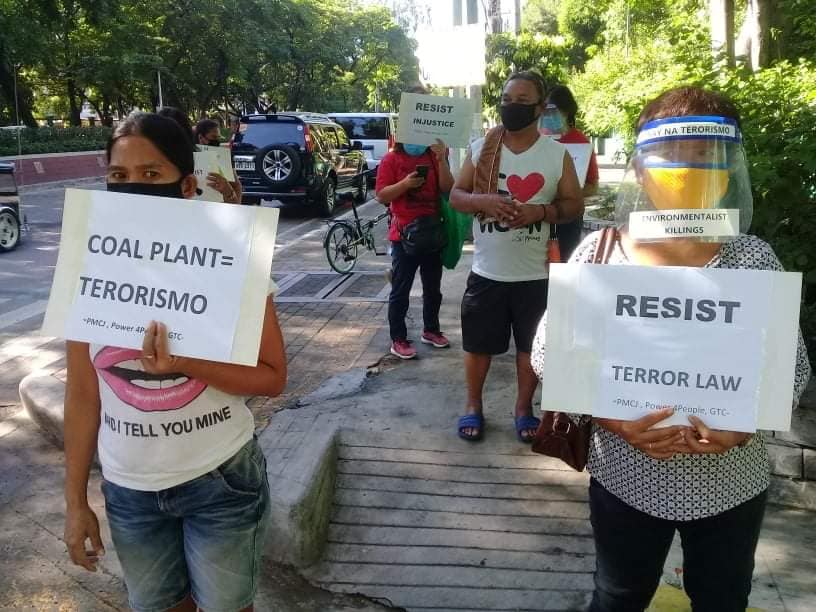
RP: Wow. Thank you for that good background. I’d like to go back to talking about opposition to the Anti Terror Bill. What are the different forces and organizations you mentioned that may be involved in the united front PLM is helping to build?
TDN: There are a lot of major groups. The Maoists are one, are you familiar with the Maoist group?
RP: Yeah. You mean the Communist Party of the Philippines (CPP)?
TDN: Yeah. They still command a large number of people, so that’s one. And then another major factor that could be used is the aggregation of the labor groups. Whether these are from the Maoists or from others, there is an existing and open line, a very cordial and accommodating atmosphere between labor groups in the Philippines. As far as the total movement is concerned, there are a lot of NGOs and civil society organizations that are willing to take part in protest who are leaders in various communities, and then there are other NGOs with other accomplices with issues of concern. So when you say political blocs, there are also major factions who are also part of this. Our groups, PLM and BMP6, and many other organizations are part of it.
There is also a group called Kilusan para sa Pambansang Demokrasya [Movement for National Democracy, KPD]. They are a Maoist group based in Central Luzon. They actually bolted out of the CPP in, I think the late 90s, and then they organized themselves as KPD.
RP: I do want to talk more about the Filipino left, but before we get to that, could you talk about the opposition from the Catholic Church you mentioned in our last interview?
TDN: Well basically, the role of the church right now, they are very much active in major issues of concern. In fact, in their last pronouncement, they are also opposed to the shutdown of ABS-CBN, a major media company in the Philippines.7 Previously, they have been very active in environmental issues and of course the recent Anti Terror Bill. The Catholic Bishops Conference of the Philippines (CBCP) released a position against the bill.
RP: Do you think any Catholic Church groups will be involved in the united front?
TDN: Yes because one major component of the formation of the united front group is to involve the Catholic Church. We have formed united fronts with them in the past. The last time I think was during the extrajudicial killings when that issue was very very popular, it forced the church to issue a statement. There were a lot of talks and open lines for talking to them, and then they were able to support some major unified actions that we pursued in the earlier years of the Duterte administration. In 2016 to 2017, Bishops and many other personalities in the church issued statements against extrajudicial killing.
RP: And last time we talked, you mentioned the Catholic Church was encouraging people to withhold paying their taxes to the government on Tax Day as a way to protest the Anti Terror Bill. How did that go?
TDN: I’m not privy on if the Filipino people were able to comply with Tax Day [which was moved to June 15 this year] anyway. In the context of Cebu, I think many Cebuanos were not able to comply with that. Why? We are on an extended Enhanced Community Quarantine, and many people do not have jobs, and they are awaiting for to normalize the situation so that they can work again. Many were already displaced or laid off, so in the case of Cebu, I doubt Cebuanos were able to comply. Maybe in certain areas where there were more lax policies, maybe people there could comply, but I don’t think Cebu was able to.
RP: And to talk a bit about ABS-CBN, can you talk about the significance of the government’s decision to not renew their contract?
TDN: Yeah. The present pronouncement from the Duterte administration on this is that he is only trying to put a stop on the oligarchy, insinuating that ABS-CBN is part of the oligarchy. He is now arrogant enough to say that they have stopped this part of the oligarchy, but it is a self-serving statement. He has his own oligarchic people supporting him. So it’s just a vindictive action of the Duterte administration to end the business of the Lopezes who own ABS-CBN.8
In Philippine law, the congress, the House of Representatives are given the authority to approve any kind of franchise of such kind of company as ABS-CBN. So a media company has to apply for a franchise before the House of Representatives. Their application was taken up in twelve hearings by the House.
One major reason given against renewal was the company not paying their taxes. But it was proven by the representative government agency that ABS-CBN did not violate such kind of obligations. They were religiously paying their taxes. Some other points that were raised during the hearings that many of the congressmen lamented were about how the company projected them on the media, so these are personal motivations.
One prominent person was Congressman Mike Defensor. Defensor owns a mining company. One of the ABS-CBN owners was once a Philippine Natural Resources secretary, Gina Lopez. Lopez actually came up with the decision to close his mining company, and during the hearing he asked so many questions about that. If you are witnessing the hearing for twelve sessions, and if you are on the outside, if you are an ordinary person witnessing the hearings, you would come up with a positive decision that ABS-CBN did not violate anything and their franchise should be renewed.
So in making law in the Philippines, it must pass through a committee. The committee had 80 plus members. Seventy voted against, 11 for the renewal. So the committee level struck down the law.
RP: Okay, so I have one more question on the topic of opposition to the Anti Terror Bill. You sent me an article which reported that 45 US lawmakers oppose the bill. What do you make of that?
TDN: Well, how come of all people, how come the US is interested in Philippine affairs? Well they are of course very concerned with how a democracy works in the Philippines. And being touted as a major country and supposedly a role model in practicing democracy, I think that is what they want to imply in their concern.
But consider our previous experience during the Marcos era9 where the democracy was already a failure. For them, the concern for a country like ours was not simply maintaining freedom of expression. The country was a connection, and even still now, a direct colony of the US, and that will also economically affect the US. So whatever chaos will be in effect after the Anti Terror Bill is in effect will affect the US. Of course, the big businesses are worried. The US policymakers are worried it might affect the relations of the two countries: the imperialist and the colonized country. So it’s not surprising the US will continue its encroachment in Philippine affairs, to maintain its US interests in terms of business, and in terms of presuming that they are the champions of democracy and as such the Philippines must comply with that. But I think they are more worried that after the implementation of the bill, it will create chaos, and then the Duterte administration will be addressed, and it will affect not only the Philippine economy but the US as well.
RP: Have there been any other reactions from imperial powers, specifically regarding the US-China rivalry playing out in the Philippines?
TDN: In relation to the US and China, I think the US has an edge right now because the Philippines is in pandemic mode. The Philippines is clinging toward getting more loans. The debt that we have right now have really ballooned during the Duterte administration. He is now clinging more to the US than China. It is still volatile. In the next years to come, he cannot fix what is going on right now. But as far as my analysis is concerned, the Duterte administration is clinging more to the US right now because he needs help. He needs millions of pesos because he has no budget. The budget he allotted for the pandemic response is not enough, he cannot fund the response. He needs money, and that is now his problem.
So if ever the US will be able to provide what he needs, I think that will at least cement their relations. I just don’t know what will be the move of China, the other Duterte ally, in terms of getting some help. In the early years of the Duterte administration, he was able to secure loans from Chinese businessmen, and he has a lot of people doing that, doing these negotiations. That’s why if you’re trying to examine how the government’s attitude in the West Philippine Sea and so many other conflicts with China, that President Duterte is silent and makes statements favorable to the China government and so on.10
On the other hand, the Anti Terror Bill will benefit the US government, the passing of the law. It will give more of a secure status to the Duterte administration; it will be able to control the Filipino people for whatever interest the US has for the Philippines.
If you will really see what is happening now in the Philippines, there are lots of issues of concern that the Filipino people are confronted with. Many issues that will not only provoke, but will actually create major conflicts that the Filipino people will not be in a sitting down mode for. There are a lot of issues that surfaced during the pandemic time where a lot of corruption and people are already frustrated, many are already expressing their dissent. The country is in a volatile situation where anytime, just like a volcano, will explode, and that is something the Duterte administration would want to repress, want to suppress, because if they do not do that, then it will not be favorable to the country’s stability.
RP: Thank you. So I want to go back to talking about the state of the left in the Philippines. What is the current state of the Filipino left? How organized is it, and how much of a reach does it have?
TDN: Well, there are still a lot of people to be organized. Maybe this time around it’s more favorable to organize dissent in the country. But if you would ask me subjectively how many forces there are, it’s still a far cry from during the Marcos era where in every community there was a lot of organization. If the people now could maximize their planning, if these people complaining would be organized, then that could be a welcome force to reckon with in relation to the possible scenario that the era during the Marcos time will be repeated. History repeats itself, and the people’s sentiments should be maximized and be welcomed as part of our continuing struggle to effect change in the country.
Now I would like to recall what I have told you in our earlier interview. That the Duterte administration is already preparing for his graceful exit in 2022. So the option for him is, of course, he will groom his daughter as a possible candidate for the presidency. Another option would be the no election scenario. These are actually framing why Duterte is trying to come up with some policies like the Anti Terror Bill. He can use it to suppress opposition, to make the situation favorable to him by the next election. At the same time, I think Duterte would welcome a no election scenario.
RP: Why might he welcome that?
TDN: Because if ever he will not be elected, he has to suffer the consequences of what he is doing right now. He has a lot of sins. And if a new government is installed, that’s the time of persecution. That is Philippine politics. If you are not in command, if you are not an ally of the administration, and you’ve committed sins, then in the next administration you will most likely suffer.
That’s like what happened to Estrada11 who was jailed, and just like what happened to Arroyo [also known as “GMA”],12 when she was not in the government, in the administration, she was jailed. These are consequences that the Duterte administration would most likely suffer.
Estrada was the president in the 1990s, and after him was Arroyo. But when Arroyo supported Duterte in the 2016 elections, now in the first year of Duterte, Arroyo was released from jail. It was believed that during the campaign for President Duterte, GMA gave so much money for the election campaign. That’s why the first year of Duterte was the payback for Arroyo. Also the Acquino administration before Duterte, during which GMA was jailed, did not want to bury Marcos in the Heroes’ Cemetery.13 Now Marcos‘s surviving family and GMA gave a huge amount of money to finance the election campaign of Duterte, that’s why in 2016 Duterte gave these to Marcos[‘s family] and Arroyo, giving way to the burial in the Heroes’ Cemetery, and of course getting out GMA from jail.
RP: Thank you. So to talk a little bit more about the Filipino left, what different organizations exist right now, and what do you think their current power is?
TDN: Still, the major force to reckon with are the Maoists [CPP]. They are really a force in terms of how to pursue a major turnaround in Philippine politics.
Of course, our group is another one, but we are not as big. I have already mentioned the Central Luzon-based faction of Maoists, and there is also the social democrats. This is the soc-dem left. Most of their popularity is with Makabayan Bloc.
These groups are able to participate in a major project in relation to the broad united front work in opposing some of the major issues, very recently of course the Anti Terror Bill. They managed to also consolidate their forces, joining some actions, and then there is the progressive church.
The progressive church, although not all of the church, but they are more participatory in terms of how they view issues of concern. And of course there are a lot of minor groups that are still part of the anti Duterte movement. I cannot numerically point out what are these organizations, but at least I have informed you of some major players.
RP: Ok—
TDN: In addition to these left forces, there are traditional opposition forces. This is another aspect which we are in partnership with for the united front, the traditional opposition. The minority party. The Liberal Party is in opposition right now, and it has only minor members in the House of Representatives. As part of the opposition, they are maintaining links with the progressive forces, making their presence felt. But of course we are, in terms of how do we view these people, is that we are more comfortable with the other forces of the left, including the social democrats.
RP: Could you talk about why?
TDN: Yeah well, because we are for systemic change. We are not opposing the Duterte administration, only to be replaced by another trapo,14 by another landlord, by another big business capitalist. Our standpoint, particularly as members of the PLM, is we are for systemic change; we are for the overhauling of the system, not replacing it with a new kind of law, a new kind of animal that will only preserve the interests of the big business sector. We are for socialism, we are socialists. We want to ensure the overhauling of a rampant capitalist system.
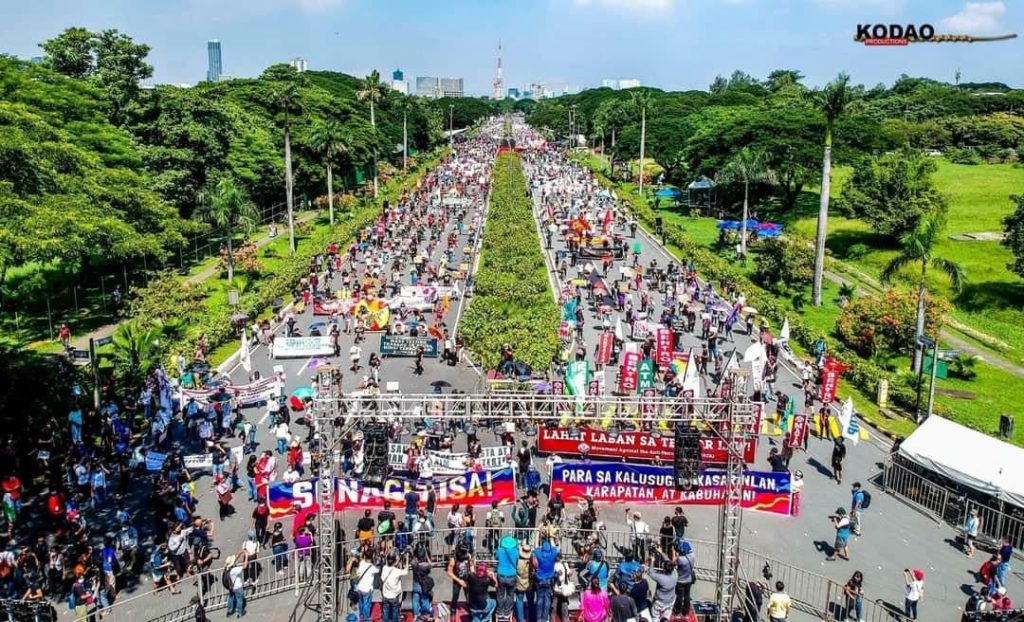
RP: Ok, thank you. Now that we have discussed the Filipino left, I want to ask about the Filipino masses more broadly. What do the masses look like? What is its class composition; is it working class? Are there peasants? The informal economy? Basically, what does the class composition of the masses look like, and how organized are they?
TN: Yeah. There are still peasants. And then there’s already a huge formation of the informal sector, and this is because peasants actually migrate to the city; they are being proletarianized, and still this is a huge composition of the basic sectors. And these, I think, could be considered as members of the working class. This working-class should stand against what is happening right now in the Philippines. During the pandemic, it was felt that many of the huge number of formal sector workers were really frustrated by how the government responded with the pandemic, so this is an opportune time for a huge chunk of the basic sectors to get organized, and that is now the role of many organizations like the PLM. How they will maximize the situation and how such kind of forces would be organized into major organizations that will be part of the movement, the movement for change, the movement to overhaul the rotten capitalist system.
RP: Are you hoping to organize more workers into unions?
TDN: Yes. Unions are not our only option. We have, for those areas where we cannot form unions, we can form associations, we can form cooperatives, we can form any suitable formation that will be able to consolidate them. During the pandemic, do you know that eight million Filipinos were already displaced, and it’s a huge number to organize them. Eight million is something huge that if socialist organizations like PLM could consolidate them and organize them into formations, into unions, that could be a huge relief. Big for our case for the advancement of socialism.
RP: I know you have to leave soon, so we don’t have much time left. I just have a few more questions I want to try to get through. You just mentioned eight million people were laid off, yet the government claims the recovery will be strong. What do you think the economic effects of COVID will be, and what challenges does that present for you?
TDN: The government is very optimistic because they have a different framework from us. Ours, we are pessimistic. Why? Because they don’t actually come up with a program that will totally solve the pandemic for the country. Their response is questionable; a lot of corruption is happening, and then they keep on borrowing just to finance the budget they need for the pandemic.
Do you know that our total debt right now is already eight trillion pesos? That is not a minor thing. In terms of how we manage our budget, in terms of how the government is responding to its programs for the poor, and so and so, it’s all failed. So what is this optimism all about, when in fact they can’t raise funds, it’s already at a loss on how to manage its program? They have no money; they keep on borrowing. The taxation is not increasing because they keep on giving exceptions to the rich, and what is only being taxed is the ordinary people, so how’s that? How will we be able to generate money for the country to recover the economy? There’s a lot of problems, and they are a Superman if they will be able to resolve this kind of thing. I don’t know where they get their optimism.
For me, if you ask me, it’s impossible right now for this country to recover. The growth is stagnating. I cannot decipher anymore what would be their basis on why they are on the road to recovery.
RP: Right. The Philippine economy lost 1.1 trillion pesos, or 5.6 percent of its GDP, across the agriculture and service sectors.15 Can you talk more about the economic sectors of the Philippines and how they are being affected?
TDN: During the pandemic, many sectors were really upset. The agricultural sector and of course other sectors depend on a normal situation.
Cebu is considered as a tourism hub. It’s more on services and recreation. All the beaches were closed. All hotels were closed. And the formal sector which form a major chunk here were also affected. The shipping lines, the major docking points were under a lot, and the informal underground economy, this has stopped.
How will we be able to regain this when the new normal is not actually normal? In terms of the economy, it can longer be normal as before. Like for example, during the new normal, we will still pursue the physical distancing. For entertainment here in Cebu in hotels and in resorts, that will minimize clients. Even restaurants that can only accommodate 30 percent of their clients to patronize their restaurants. All this are part of a huge industry of tourism, recreation, entertainment. That’s what Cebu is all about, although there are some industrial sections, but that is not the main characteristic of this region. In terms of tourism, this is a huge industry where many people are depending on it.
So I don’t think if we will go down to the new normal, the real normal thing will be able to be regained. It’s no longer as normal as before. It’s a new normal where you have to observe things which are detrimental to the economy.
RP: Thank you. With our remaining time, I’d like to ask how do you think the Anti Terror Bill can be defeated. What do you think the task right now is for the united front? How can it defeat the bill?
TDN: Well, we have to sustain what we have already achieved earlier, doing some common and unified action. Of course there are the basic organizing efforts to rally the basic sectors which are affected by the pandemic. And there is the role of the church, which is a major factor in trying to reach out to the silent majority of the Filipino people because I am counting on the predominance of the Catholics in the Philippines where 90 percent of Filipinos are members of the Catholic Church. So if we will combine these things and maximize the role of the church, and then a more united front for all the forces opposing the bill, together with some enlightened lawmakers, then that would be a major ingredient to move onto a higher level of fighting against the bill. That is the determinant on how we will be able to achieve our goal to junk the Anti Terror Bill.
RP: And how do you expect to get more people to protest and more people to participate?
TDN: We really have to be in complement to the new normal phenomenon. Before we were able to muster huge numbers in terms of mobilization. Maybe we can still do that, and still maintain the physical distancing policy. We would have to be creative.
We have to maximize all arenas of struggle, not only mobilization. Maybe we can enhance more on the lobbying, on some small dramatic actions where we can project our issues of concern, and make people participatory but not break whatever the rules will be in the new normal times.
Vigilance would be one possible point of engagement. Vigilance in terms of how the government is running its budget is running its money in terms of services to basic sectors, in terms of how the economy will work, and many other things.
We have to also be more attuned to the online actions; we still have to maintain an online action that is very sensational, that is very informative, that will draw in many Filipinos to get that message we want in these actions. We already started with that lately, in terms of campaigning against the corruption regarding the relief the government should give to its constituents. Like in Cebu City two weeks ago, we had this online action questioning how the 500 million pesos was spent when only 80 million was accounted for. Where is the money? So what we did was a synchronized online community actions, and it was projected in the papers; it was not only on social media, because we made it a point that our action was really appealing to the public. So that is how we will go on with our struggle here in the Philippines.
RP: What do you think is next for the opposition if the bill is not defeated in court?
TDN: If it’s not defeated in the court, we’ll still continue with our fight. It’s not the end of the world for us because we are more concerned with how we can rally on the people to make their voices heard, so we can have a callback to a social movement that will mobilize people from all walks of life. And this is more dependable, more strategic. The continuing fight against the bill would serve as a rallying point on how we further pursue our goals, on how we further mobilize people, on how we will educate millions of Filipinos to effect changes in the country.
RP: And as a socialist, what do you think are the main priorities for socialists in the Philippines right now?
TDN: I think still education. Why? We have this reality that many are still devoting their political efforts, so many of them in terms of consciousness is really low, and we need to uplift. We need to really come up with an education that will fully conscientize them, provide them the more basic foundations, introducing them socialism, and then pointing out what kind of rampant system we have, so that many people will be awakened by this thing. I don’t think there is another hope on how we will pursue our continuing struggle—for us, having a large constituency, having millions of people to be awakened, would be a huge investment for pursuing our struggle for socialism.
RP: What do you mean by education?
TDN: When I say education, this is more conscientizing the population. This is more on popularizing the best offer that we can give is pursuing socialism. So this is not reduced just to have the seminars, orientation, discussion, but it has to be integrated in all our painstaking work to the public. This is every action, every form of activity that we will undergo, so it’s a comprehensive thing. It’s a comprehensive thing where we will introduce that the best alternative to capitalism is socialism.
RP: What is the other painstaking work with the public you are referencing?
TDN: Well, it’s really hard to organize, and we are still in the process of coming up with strategies in terms of organizing. Because if you are organizing in the way the traditional politician works, it’s just giving them money and they can be mobilized. But the more painstaking for us is we have to really discover that we have convinced the people not by giving them money in return.
During elections, it’s really easy to organize, to mobilize, because there is a lot of monies being poured into the communities. Now on our part, we don’t do that. Ours is a painstaking, educating, going around in the communities, grassroots organizing, explaining the issues. That is the hard way. When we call for mobilizations and they come in droves, we are glad that not all people are being paid for any action; we are glad because these people, they were convinced of the issue, they were united of the issue, because they believed in what they have learned from us, and that is the best results that we can achieve in every painstaking job that we are doing.
That is the hardest thing, convincing the people, explaining to them, and let them realize that they are not doing the right thing because really, there are a lot of ordinary citizens who still depend on the traditional positions. They are the ones consenting; they are patronizing the trapos tradition of politicians.
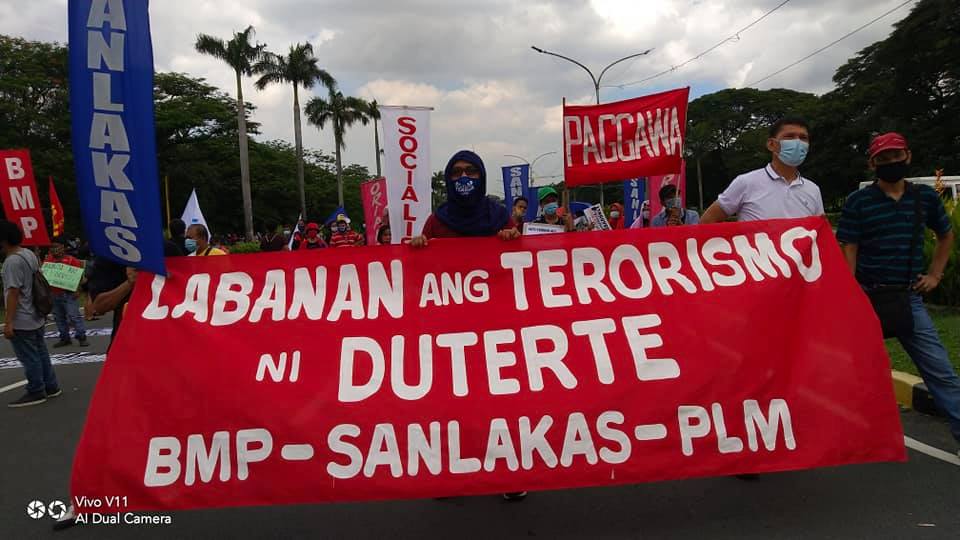
RP: Okay, well I believe those are all of my questions. Is there anything else you want to add?
TDN: Well, as part of the global situation we are in, we are in pandemic mode. I want to convey to my Filipino brethren in every part of the world, that there’s still hope for us in this country to effect genuine change. If we will really be serious, then there is an alternative. We have to organize and make our Filipino brethren a socialist kind of thinking paving the way to an alternative to the capitalist, to capitalism. A socialist society, that would be the best alternative in pursuing genuine changes in the Philippines, so I am calling all Filipinos that they must stand with the people and not with the elite who are doing a failed democracy, who are doing a sustained corruption detrimental to the Filipino people.
RP: Alright thank you. Thanks for talking with me during this time.
TDN: Thank you also Ryan, and I hope we can meet again. I hope you can still further come up with activities like this, about changing updates of the Philippine politics and so and so. And so I am looking forward to continuing engagement with you and thank you, thank you very much.
RP: Thank you very much, Teody. Have a good day, thank you. Bye.
TDN: Bye-bye.
